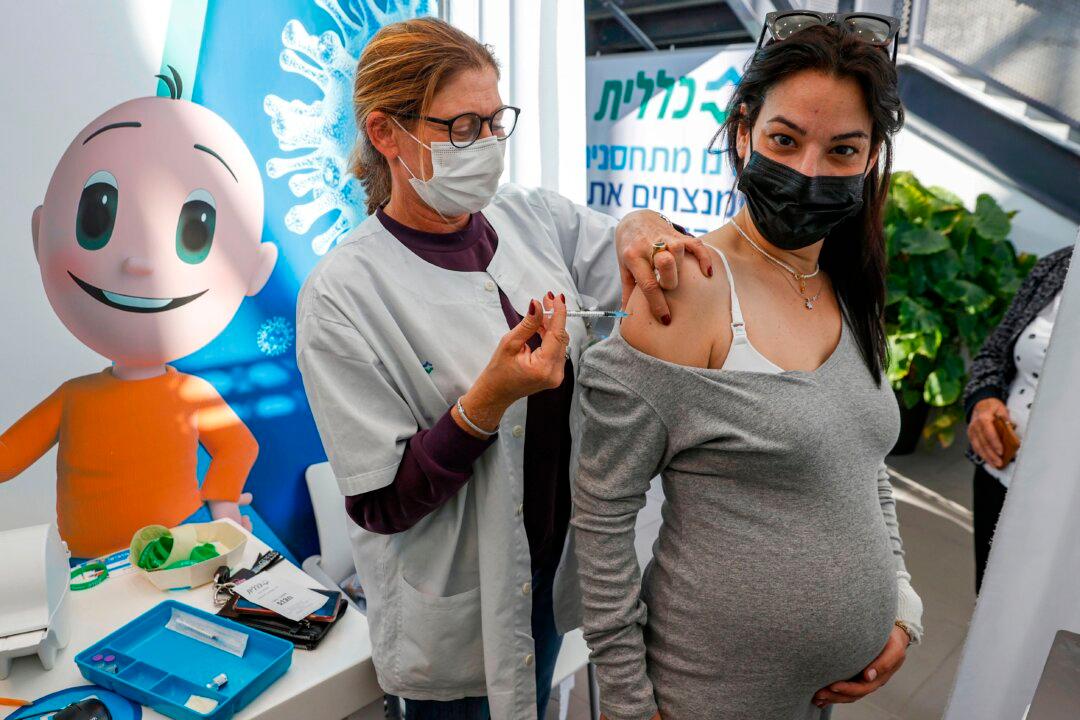Pregnant women infected with COVID-19 appear to be at greater risk of experiencing common pregnancy complications compared to women who are uninfected, according to a new study.
The National Institutes of Health (NIH) funded study included data from more than 13,000 pregnant women from 17 medical centers across the nation. Of those participants, nearly 2,400 tested positive for the CCP (Chinese Communist Party) virus.





